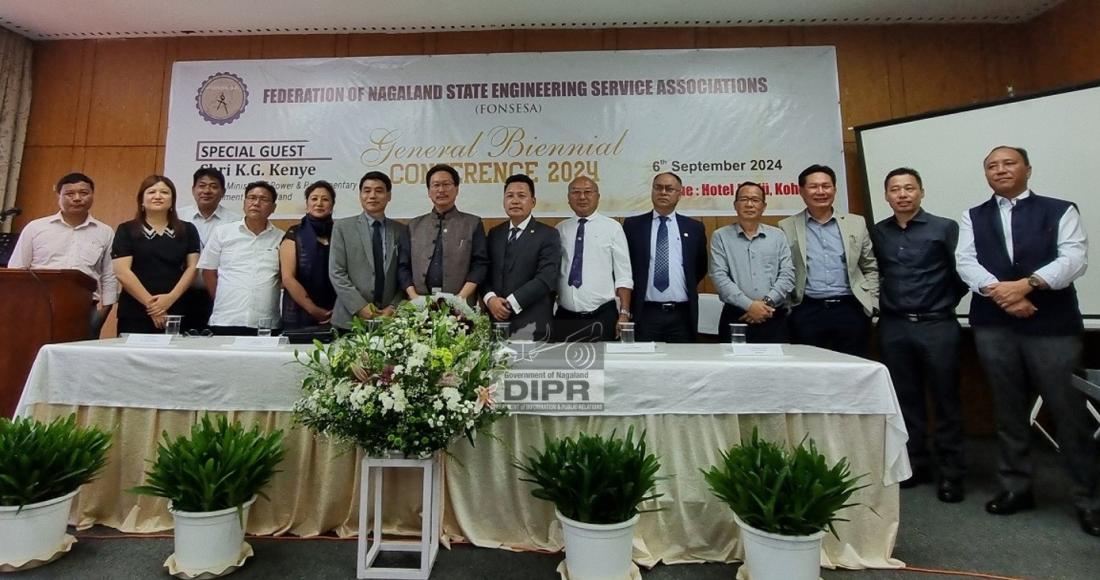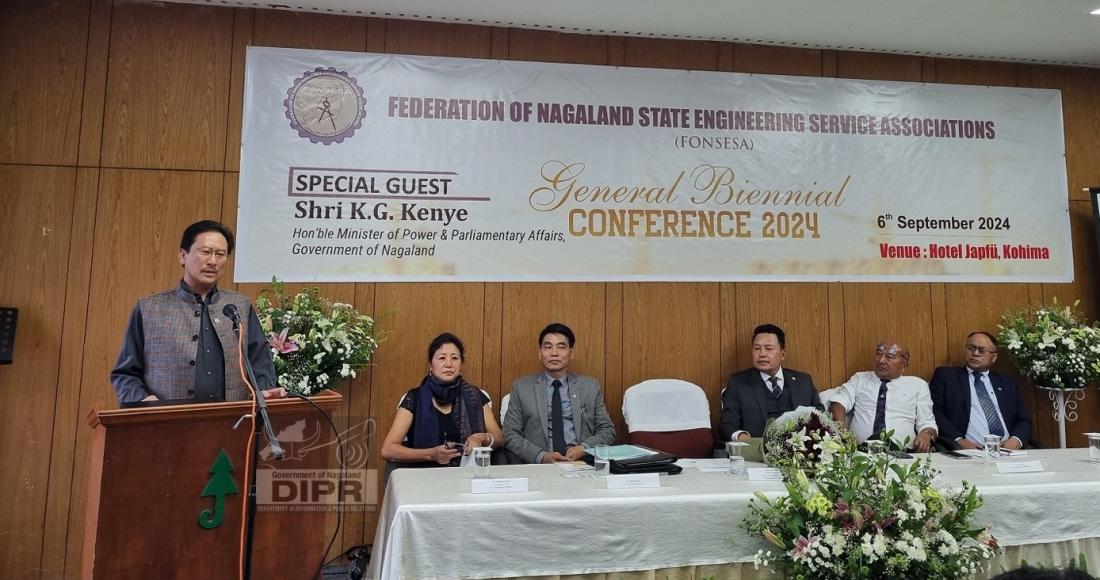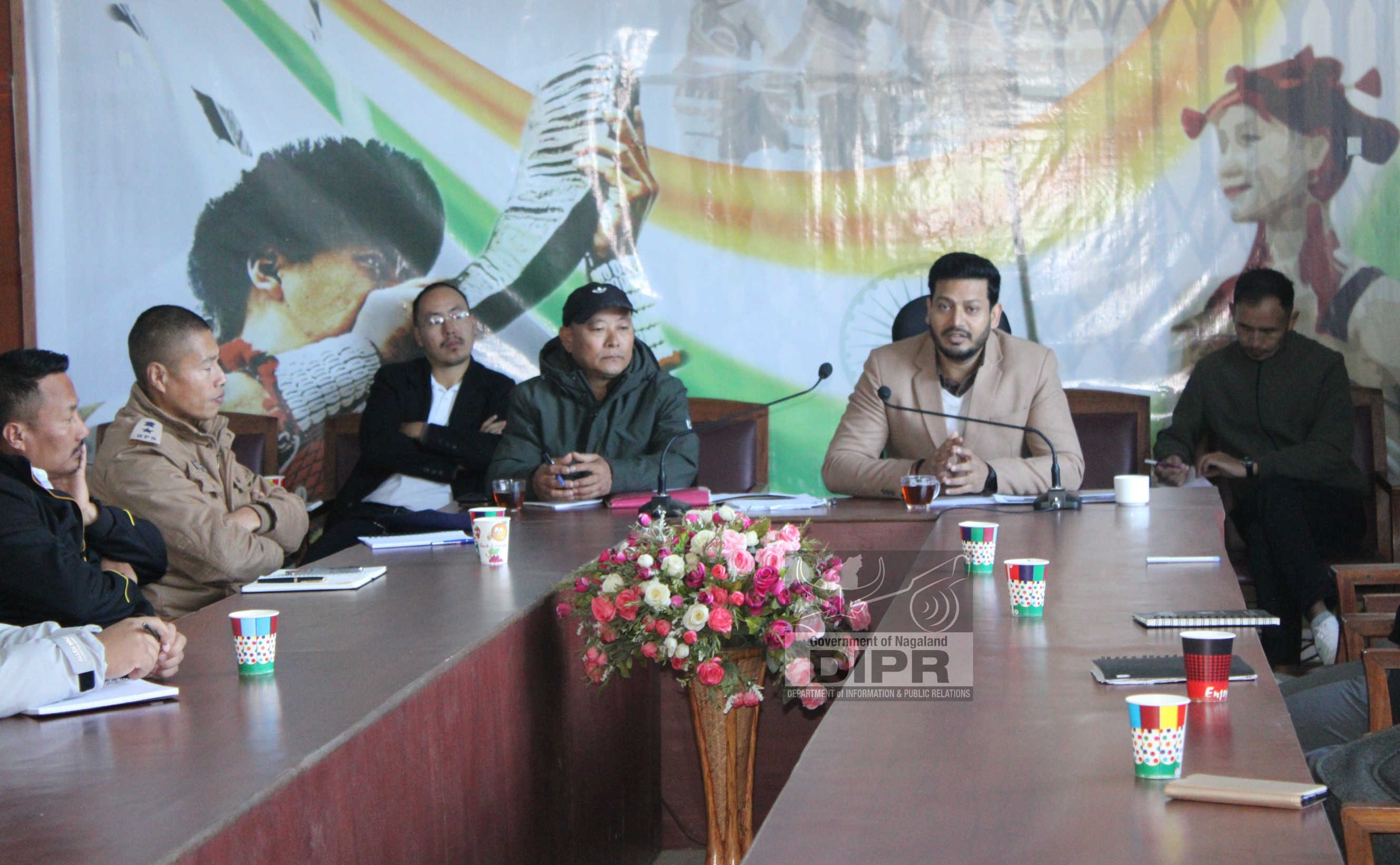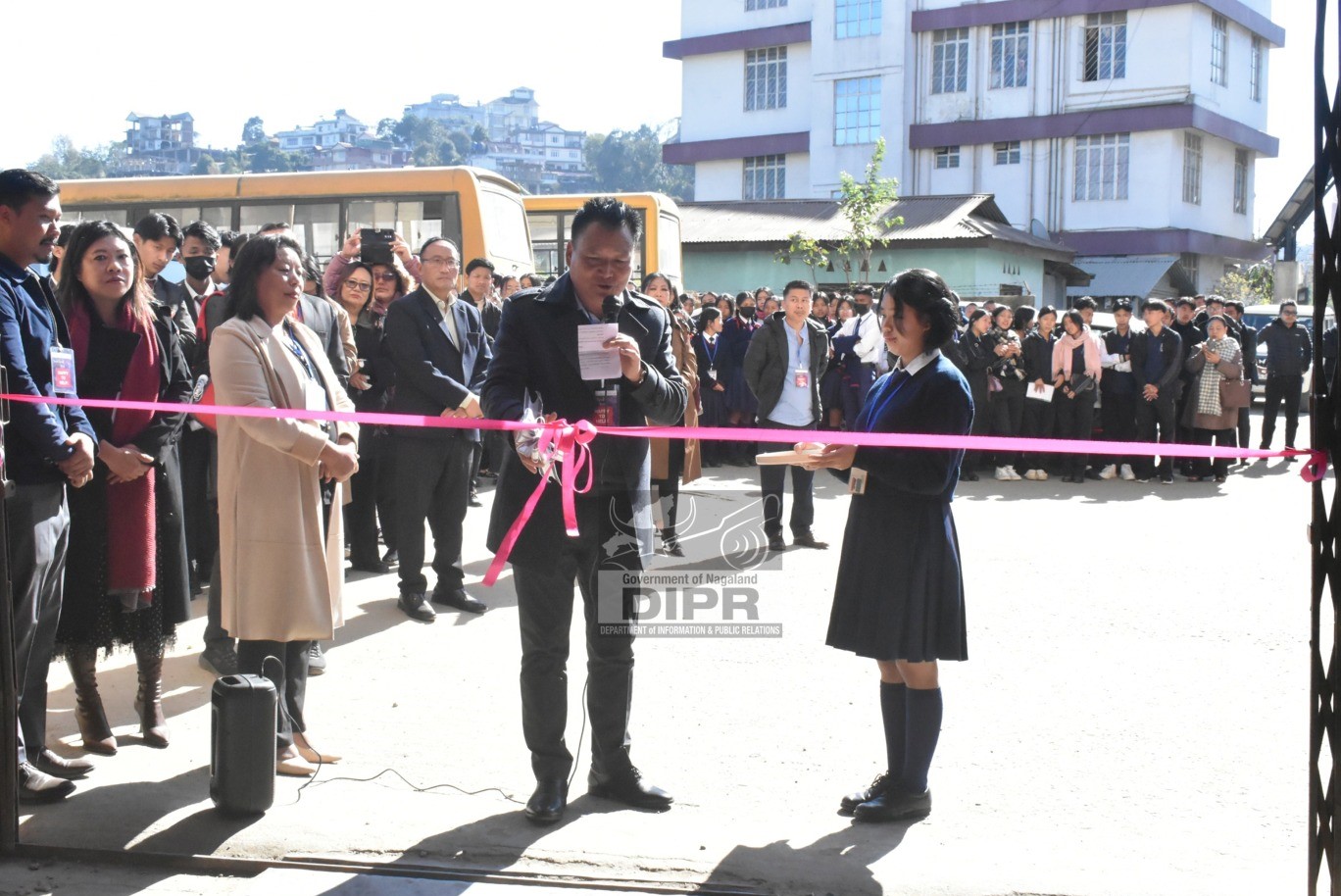The General Biennial Conference of Federation of Nagaland State Engineering Associations was held at Hotel Japfü, Kohima with Minister of Power & Parliamentary Affairs, K. G. Kenye, on 6th September 2024.
K.G. Kenye has called on engineers and technocrats to harness their untapped potential to drive the state's development despite limited financial resources. Speaking at the event, the minister expressed gratitude to the builders of the state, recognizing their efforts in developing infrastructure and urging them to continue their work despite challenges.
Kenye highlighted the importance of communication and road infrastructure, calling them crucial for societal growth, and noted that the lack of proper road infrastructure and power supply has negatively impacted multiple sectors, leading to social and political unrest, which he described as having a cascading effect on society.
The minister also addressed the on-going Naga political issue, stating that it has stunted Nagaland's development for generations. He urged citizens to prioritize resolving this long-standing issue, emphasizing that without it, the state cannot progress.
Kenye encouraged technocrats and government officers to collaborate with politicians to help move the state forward. He called on engineers to identify and address systemic issues that hinder development, ensuring future generations are not burdened by these unresolved challenges.
In conclusion, he urged citizens to be assertive and step forward in the face of division within society, stressing the need for unity and collective effort in achieving progress.
The President of the Federation of Nagaland State Engineers’ Association (FONSESA), Er. Hutoi Sema, emphasized the organization’s on-going mission to champion the needs of engineers in Nagaland, while acknowledging the critical challenges they face during his address at a recent gathering.
Sema highlighted the immediate challenges facing the state’s infrastructure, particularly in the wake of recent natural disasters. He said that the roads have become victims of flash floods, landslides, and mudslides, which serve as severe reminders of the unpredictable forces of nature. These incidents, according to Sema, have posed significant challenges to infrastructure, testing the resilience and ingenuity of Nagaland’s engineers.
The key issue discussed in his speech was the delay in finalizing the Nagaland Engineering Service Rule 2012 (NESR 2012), due to unresolved disputes with the Personnel and Administrative Department. Sema expressed hope that these longstanding issues would be resolved soon, allowing the rules to be implemented, which would improve the structure and functioning of the state’s engineering services.
FONSESA, along with partner associations, are also actively seeking justice from the state government to ensure fair representation for engineers. The president stressed the need for engineers to receive their rightful share in IAS encadrement and appointments within the Nagaland Public Service Commission (NPSC).
He called upon his fellow engineers to remain committed to their mission and to work together to ensure that Nagaland does not lag behind but stands tall with the rest of the country. He emphasized the importance of developing sustainable and inclusive infrastructure.
As the engineering profession witnesses the rapid evolution of technologies like Artificial Intelligence, Machine Learning, the Internet of Things (IoT), and smart infrastructure systems, Sema urged engineers to stay abreast of these developments. He encouraged engineers to embrace these innovations, which offer sustainable solutions to the state's unique challenges, such as difficult terrains and the need for climate-resilient infrastructure.
However, Sema acknowledged that the road to innovation is fraught with challenges. Engineers in Nagaland often face limited resources and a lack of exposure to the latest technologies. He stressed the need for collaboration across departments, with the central government, and with private stakeholders to push for systemic changes that empower engineers to implement modern solutions.
Sema also highlighted FONSESA’s commitment to international collaboration, as the association celebrated the 2nd edition of World Engineering Day, emphasizing the importance of engineering in sustainable development and innovation.
(Takumpula, IA)





